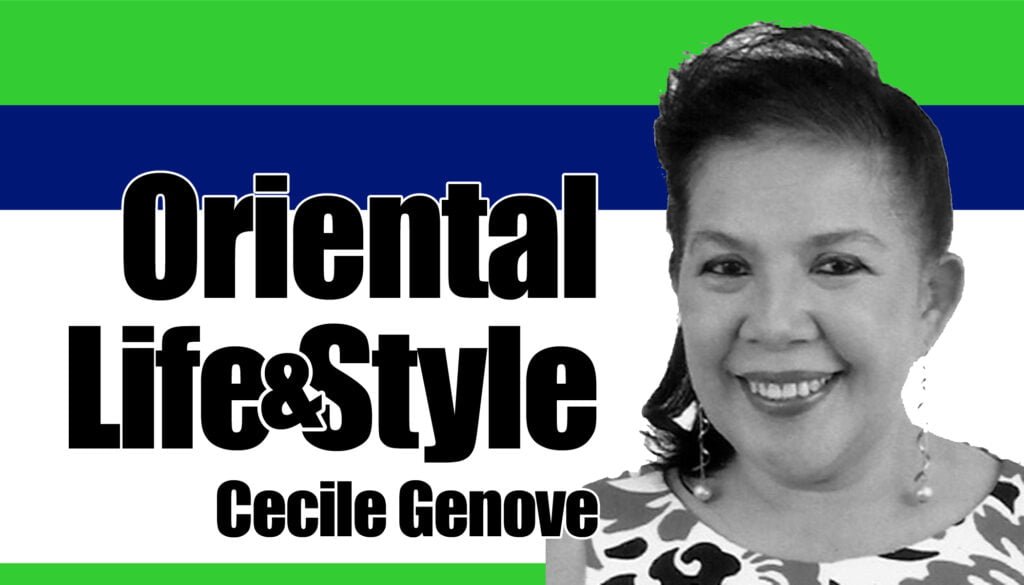
It has never been my practice to write about things or events that I consider very personal, not because I do not want to share a bit of myself to other people who may care to listen or read about it, but primarily because I feel a tinge of discomfort or awkwardness to compel people to know about my life. Not that our readers may not have a choice, but I guess I also think of the fact that other people may not exactly be interested in other people’s lives.
Others, however, say that it is part of healing and the therapeutic process to release one’s emotions by openly and comfortably talking or writing about something you consider a sacred part of yourself.
Because the third Sunday of June happens to be a celebration of Fathers’ Day, I decided to break my own self-imposed rule of not writing about myself or my life and pay tribute to the first man in my life, my father, Col. Oliver P. Madronal, who joined our Creator exactly 24 years ago in August.
I remember that time, a year before he passed away, when I had to go home to Cagayan de Oro City a number of times because the family thought it would be his last. Back then, the City of Gentle People, which Cagayan de Oro is known for, had been in the limelight, albeit infamously for the past three weeks – no thanks to the ill-fated Flight 387 of Cebu Pacific Air.
When a crisis strike your family, you drop everything come hell or high water. I was echoing what fellow journalist Claire Agbayani-Isidro of the Philippine Daily Inquirer said when she flew in from Manila to check on the progress of the rescue operations of the passengers, one of whom was her own brother.
My personal crisis was on a different level, though. The reason why I had to make a quick, unscheduled visit to the city of my birth was to find out how my father was doing after he was brought to the ICU of the Cagayan de Oro Medical Center at about 4 p.m. on Friday, the 13th. It was only later that I was told he suffered a massive heart attack.
In my medically untrained mind, a massive heart attack connotes an almost hopeless and hapless situation. To me, it meant that the patient would be incorrigible and devoid of any sign that his mental faculties is serving him well. I also entertained the notion that when one has heart ailment, which would lead to a stroke, it is only the chest area (where one’s heart is located, naturally) that is in pain.
All these, however, were dispelled by our family’s own account. Per the experience of my mother (who has, to this day, in her 92 glorious years, remained as strong and courageous through it all), the first lesson one should learn is to have presence of mind. Had it not been for proper timing and her quick thinking, my father would have been a goner on his first attack. But, he survived his initial attack and was given a lease on his life for another 18 months, a bonus from God, to put it mildly. They had arrived in the hospital in the nick of time for him to be given a shot of a highly effective, but expensive (I guess that’s really how it goes; you pay a price in order to live) medication.
Lest you may think that my father was brought in in an ambulance or wheeled into the emergency room, nothing of that sort of drama that we normally see in the movies actually happened. What transpired may have been one for the books. Where in the world would you have seen a patient (whose stroke was actually building up its momentum, ready to engulf him once it reached its peak) who walked calmly to the information counter, resisting any form of solicitousness lest it be misconstrued as pity or helplessness? To top it all, have you ever heard of an ailing patient who makes sure that his pomade gel is inside his bag of essentials?
In his lifetime, my father was as vain as vain could be. For one, it seemed he did not look his age (he died at the age of 70, relatively young by today’s generation considering that many are able to reach the 80s or 90s mark) because he made an effort not to look like he was a ROMEO (retired old man eating out). In fact, he detested being called a senior citizen. He wore jeans and was up-to-date with fashion and trends. He loved endless conversations and the good life; hence, one would surely say he should be the last person to be afflicted with an ailment identified with persons who have a less positive disposition.
Lesson number two: we have to be good stewards of our bodies because definitely, health is wealth. Of course, one may argue by saying that if it is your time, then it is your time; there is nothing one can do about it. But, if we can be more kind to our bodies not just by eating the right kind of food, but by overcoming stressful situations and easing day-to-day tensions, then it will do us good.
The third and most important lesson that I am now constantly reminding myself is that no matter what happens, one’s family should be priority. I am not suggesting that you give up a lucrative profession to be a full-time homemaker (it will make you dull, according to a progressive-minded colleague of mine). What is needed is to have time for everything because life is so short, indeed. One never knows what the next day would bring. Conversely, perhaps life is not exactly short. It is what you do to make the most of your time on this earth that would spell a big difference. – NWI




